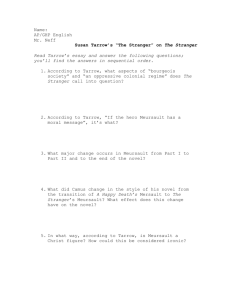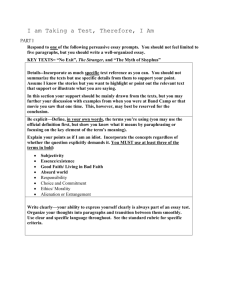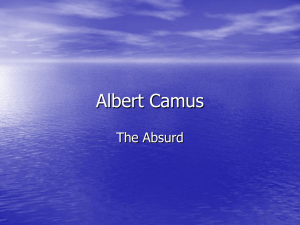If a student has time and is working for a nine, the first paragraph
advertisement
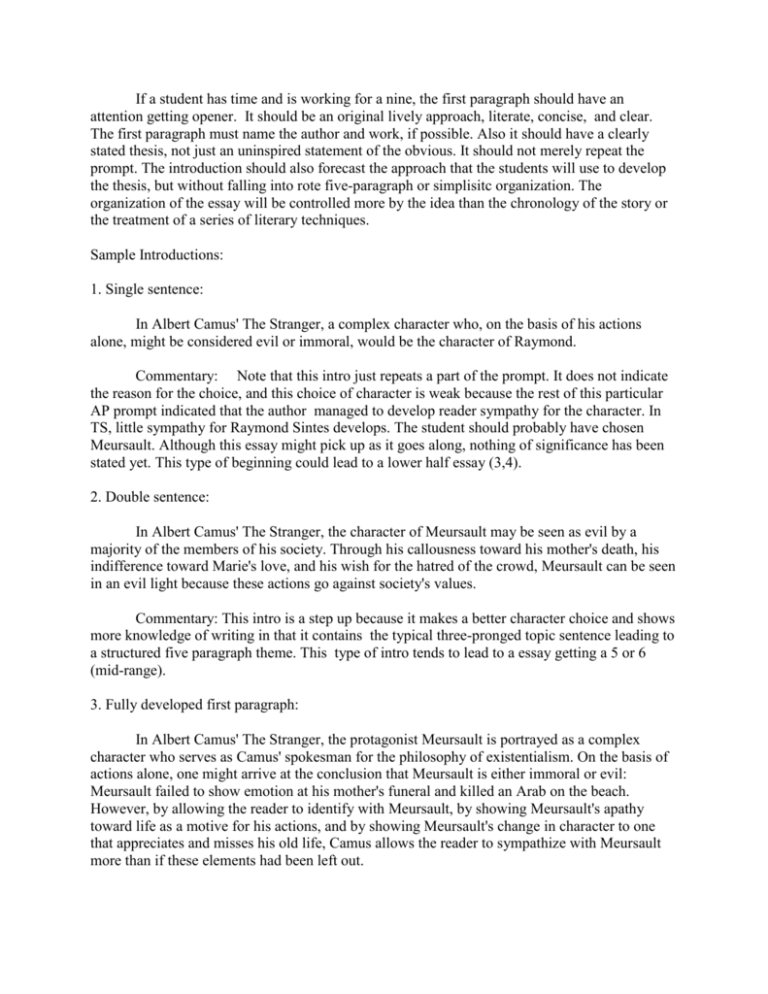
If a student has time and is working for a nine, the first paragraph should have an attention getting opener. It should be an original lively approach, literate, concise, and clear. The first paragraph must name the author and work, if possible. Also it should have a clearly stated thesis, not just an uninspired statement of the obvious. It should not merely repeat the prompt. The introduction should also forecast the approach that the students will use to develop the thesis, but without falling into rote five-paragraph or simplisitc organization. The organization of the essay will be controlled more by the idea than the chronology of the story or the treatment of a series of literary techniques. Sample Introductions: 1. Single sentence: In Albert Camus' The Stranger, a complex character who, on the basis of his actions alone, might be considered evil or immoral, would be the character of Raymond. Commentary: Note that this intro just repeats a part of the prompt. It does not indicate the reason for the choice, and this choice of character is weak because the rest of this particular AP prompt indicated that the author managed to develop reader sympathy for the character. In TS, little sympathy for Raymond Sintes develops. The student should probably have chosen Meursault. Although this essay might pick up as it goes along, nothing of significance has been stated yet. This type of beginning could lead to a lower half essay (3,4). 2. Double sentence: In Albert Camus' The Stranger, the character of Meursault may be seen as evil by a majority of the members of his society. Through his callousness toward his mother's death, his indifference toward Marie's love, and his wish for the hatred of the crowd, Meursault can be seen in an evil light because these actions go against society's values. Commentary: This intro is a step up because it makes a better character choice and shows more knowledge of writing in that it contains the typical three-pronged topic sentence leading to a structured five paragraph theme. This type of intro tends to lead to a essay getting a 5 or 6 (mid-range). 3. Fully developed first paragraph: In Albert Camus' The Stranger, the protagonist Meursault is portrayed as a complex character who serves as Camus' spokesman for the philosophy of existentialism. On the basis of actions alone, one might arrive at the conclusion that Meursault is either immoral or evil: Meursault failed to show emotion at his mother's funeral and killed an Arab on the beach. However, by allowing the reader to identify with Meursault, by showing Meursault's apathy toward life as a motive for his actions, and by showing Meursault's change in character to one that appreciates and misses his old life, Camus allows the reader to sympathize with Meursault more than if these elements had been left out. Commentary: The student has already completed the double pronged AP task in the first paragraph. He is at leisure now to develop his points in the time and space remaining. This type of thorough opener usually leads to a high score (7,8). It has the plenitude of detail that reveals intelligence at work. Also there are signs of competance in literary and general vocabulary ("protagonist" and "apathy") as well as excellent use of punctuation (How many students can write a sentence correctly using colons?) However, what this paragraph needs to move up to a nine is more stylistic pizazz (notice how all of the above paragraphs began with the same phrase -- multiply that by the number of essays a grader reads in a day, between 100 and 200, and it will become evident why creativity in the first paragraph is water on the desert of dry student writing). If this essay continues to be strong and adds humor or develops a stronger more independent voice, it might move up to a 9!
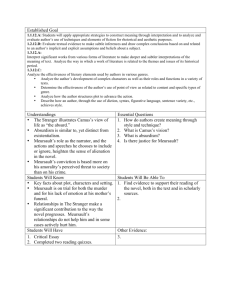
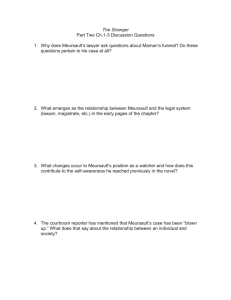
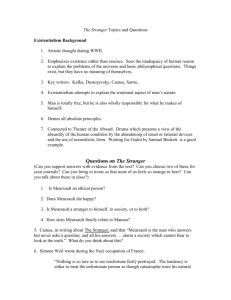
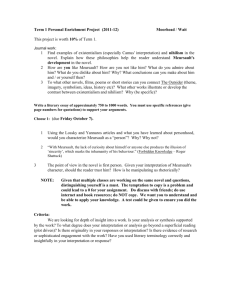
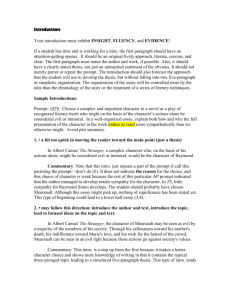
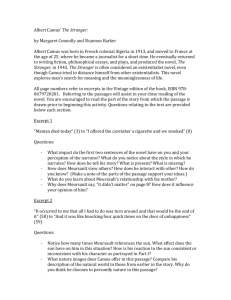
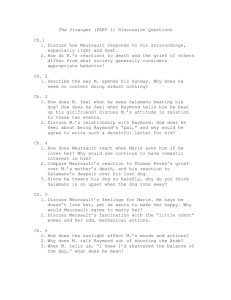
![Dialectical_Journal_The_Stranger_Part_1_Chapter_1[1]](http://s3.studylib.net/store/data/009474360_1-13e4833f16103af98d9991d7a02cbbc4-300x300.png)
